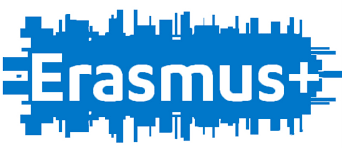Ever tried juggling multiple browser extensions just to interact with Solana’s DeFi apps? Yeah, me too. It’s a mess sometimes. Wow! Seriously though, the way wallets integrate with decentralized apps can make or break your experience. Phantom Wallet, which I’ve been fiddling with for a while, nails this integration in ways that just click intuitively. But it’s not just about plugging in—it’s also about that seed phrase setup, which, honestly, can feel like a trapdoor if you’re not careful.
Okay, so check this out—most people think all crypto wallets are just about storing keys. But for Solana users dabbling in NFTs or DeFi, the real magic lies in how seamlessly your wallet talks to dApps without constantly asking you to confirm every little step. Phantom, especially as a browser extension, feels like it’s built with that user flow in mind. At first, I thought it was just another wallet, but then I realized the smoothness of its connection to the ecosystem—it kinda blew me away.
Now, I’m not saying it’s perfect. There’s still some UX quirks and security trade-offs, but the balance Phantom strikes is impressive. The way your seed phrase is handled—well, it’s fundamental, yet many overlook how critical it is to get that right from the start. I’ll be honest, when I first saw the seed phrase prompt, I was like, “Ugh, here we go again,” but Phantom’s approach made me reconsider. Plus, it’s not just about memorizing 12 or 24 random words—it’s about understanding what those words mean for your wallet’s recovery and security.
Something felt off about other wallets I’ve tried before; they either made the seed phrase too complicated or too casual, risking your assets. Phantom’s method walks that tightrope carefully, which is why I ended up switching. You can peek at their setup guide here if you want the lowdown straight from the source.
On one hand, browser extensions can sometimes expose you to phishing or malicious sites. Though actually, Phantom’s permission model is pretty tight, and the way it isolates dApps from your main keys makes me feel safer than I expected. But you gotta stay vigilant—never click on sketchy links, and always double-check that seed phrase backup. That part bugs me whenever I hear about people losing funds because of careless seed phrase handling.

How dApp Integration Changes the Game
When you open a DeFi platform or an NFT marketplace on Solana, your wallet extension is the bridge connecting you to all the action. Phantom’s integration is slick—it pops up just at the right moments, asking for transaction approvals without flooding you with notifications. My instinct said this is exactly how it should be designed.
Initially, I thought all wallets would do this smoothly, but nope. Many still lag behind with clunky interfaces or slow approvals. Phantom’s browser extension, designed specifically for Solana’s ecosystem, feels native rather than an afterthought. The way it caches your dApp permissions and lets you revoke them easily is a subtle but very very important feature—especially for those of us who jump between projects all the time.
One thing I noticed: Phantom allows granular control over which dApps can access your wallet, and revoking access is straightforward. This kind of transparency is rare. I mean, you’re trusting these apps with potential control over your assets, so you want that visibility. Plus, the notifications are informative without being overwhelming.
Oh, and by the way, the speed of transaction signing in Phantom is noticeably faster compared to some other wallets I’ve tried with Solana. Something about how they optimize the extension to minimize overhead makes it feel almost instantaneous. This can be a huge deal when gas fees spike or when you’re trying to snag an NFT during a drop.
But here’s where it gets tricky. Some dApps require more complex interactions, like multisigs or advanced DeFi strategies. Phantom handles most of these elegantly, but I found that for ultra-advanced setups, users might need to complement it with other tools. Still, for the average Solana user, it’s the sweet spot between usability and power.
Seed Phrase Setup: The Foundation of Wallet Security
I won’t sugarcoat it—seed phrases can be terrifying if you’re new. I remember when I first got into crypto, I wrote mine on a sticky note, which was dumb. Really dumb. But Phantom’s onboarding process forces you to double-confirm your phrase and explains why it’s so crucial to keep it offline and safe.
Here’s the thing. You don’t just back up your seed phrase once and forget about it. Phantom encourages you to treat it like your life’s most valuable password, which is exactly right. They even have guidance on how to store it physically, like using fireproof metal backups or secure vaults. That level of detail is a lifesaver, figuratively speaking.
Something I really appreciated: Phantom’s UI doesn’t overwhelm you with jargon but still makes you aware of the risks. Initially I thought, “Okay, this is just some generic warning,” but then I realized the clarity helped me internalize the gravity of seed phrase security better than other wallets I used. Plus, it reminds you periodically—not annoyingly—to revisit your backup.
Still, I’m not 100% sure everyone follows those recommendations. That’s the wild card with self-custody, right? You’re your own bank, but you’re also your own security team. Phantom tries to make that less painful, but ultimately, it’s on the user.
Also, if you lose your seed phrase, you lose access—no exceptions. The wallet can’t help you recover it. This is why Phantom stresses this point, and their onboarding nudge is one of the best I’ve seen. If you want to get a feel for their seed phrase setup and security tips, check them out here.
Why Phantom’s Browser Extension Is a Must-Try for Solana Users
Honestly, I’m biased, but Phantom feels like the most polished and user-friendly Solana wallet out there—especially if you’re into DeFi and NFTs. The extension’s integration is just smooth enough to let you focus on the apps, not the wallet itself. And the way it handles seed phrases with care makes me trust it more than some others, even if it’s not perfect.
Of course, nothing’s ever perfect in crypto. You gotta stay alert and keep your seed phrase offline. But Phantom’s balance between ease-of-use and security is why I keep coming back. It’s like having a reliable co-pilot navigating the Solana universe.
Plus, the community vibe around Phantom is solid—regular updates, responsive team, and a growing ecosystem. That counts for a lot when you’re managing assets worth real money. So, if you’re on the hunt for a wallet that gets dApp integration right and treats your seed phrase like gold, Phantom’s worth a shot.
Just remember: no wallet can save you if you slack on security. Think of it like locking your front door but leaving the key under the welcome mat—don’t do that. Phantom’s design nudges you away from those rookie mistakes, which is refreshing.
Frequently Asked Questions
How does Phantom’s browser extension improve dApp interaction?
Phantom streamlines the connection between your wallet and Solana dApps by providing fast, secure transaction approvals and granular permission controls, minimizing annoying pop-ups while maximizing security.
Why is seed phrase security so emphasized in Phantom?
Because your seed phrase is the master key to your wallet. Phantom’s setup guides users to back it up safely and understand its importance, reducing the risk of permanent loss due to careless handling.
Can I use Phantom for advanced DeFi strategies?
Yes, for most typical DeFi use cases, Phantom works well. However, some complex interactions might require additional tools, but Phantom serves as a strong foundation for everyday users.




Deja una respuesta